An Opera Novice's Guide to the Metropolitan Opera's 2019-20 Season
If you’re looking for an introduction to this centuries-old art form, TM has your best bets for the Met’s next season.
The leap from musical theater to opera isn't too far — or so one might think. And yet many musical-theater fans find opera intimidating. The obstacle is linguistic for some: Having to read subtitles to understand the singers while trying to follow a plot and take in stagecraft can be a lot handle at once. Length can also be a hindrance: The three-and-a-half hour running time of Mozart's Le Nozze di Figaro or the five hours of Wagner's Tristan und Isolde may be difficult for some to endure. But perhaps the biggest barrier to opera appreciation, though, is its perception as an "elite" art form.
But it's worth noting that opera was conceived in the late 16th century as an extension of the oldest art form of all, theater, and that in other countries and older time periods, opera was considered a people's art, one meant to appeal broadly to everyone. There's no reason that the art form can't still have that cachet now, especially as companies like the Met continue to try to find ways to encourage younger audiences to turn out.
The Met recently announced its 2019-20 season, so we've selected a handful of operas to investigate if you're a musical-theater fan looking for solid introductions to this time-honored and still-vibrant art form.
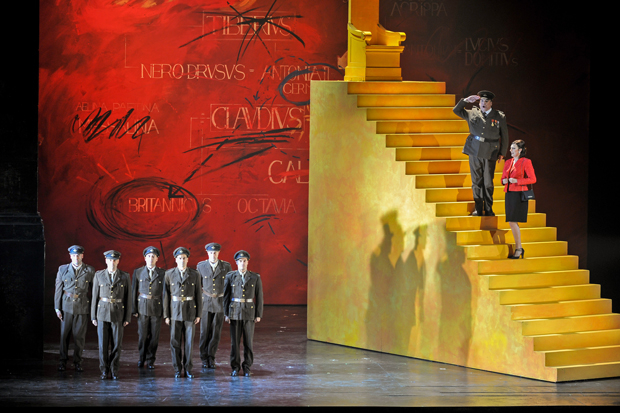
(© Antoni Bofill / Barcelona's Gran Teatre del Liceu)
Agrippina (1709)
Most people know Baroque composer George Frideric Handel for his oratorio Messiah, the holiday-season mainstay featuring the "Hallelujah" chorus. Before he wrote that, though, Handel was considered one of the finest opera composers of the 18th century. Few of those works remain in the operatic canon. But with a libretto by Cardinal Vincenzo Grimani that abounds in cynicism toward the selfish political machinations of its main characters, Agrippina — being presented by the Met in a new production by Sir David McVicar — is due for a resurgence in popularity during a time when faith in our elected politicians is lower than ever.
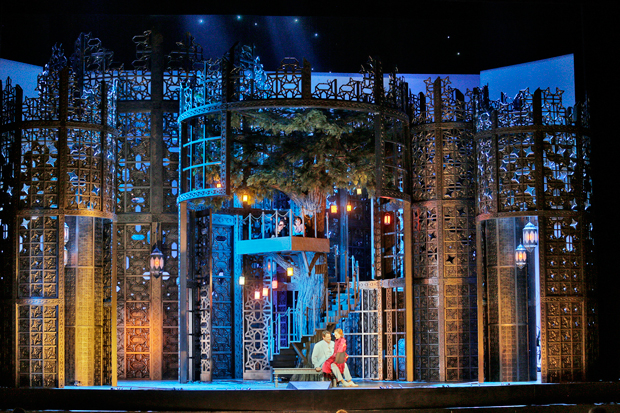
(© Ken Howard / Metropolitan Opera)
Le Nozze di Figaro (1786)
If you've seen the movie Amadeus, you'll already have a sense of how groundbreaking Wolfgang Amadeus Mozart's opera was at the time in expanding the musical and dramatic breadth of popular opera. Le Nozze di Figaro remains an essential cornerstone of the operatic repertory not just for Mozart's memorable melodies, but for librettist Lorenzo da Ponte's sharp class satire and complex characterizations. If you haven't seen and heard this witty, warm, and wise comedy, Sir Richard Eyre's lavish Met production offers as good an opportunity as any to catch up with the exploits of servants Figaro and Susanna as they outwit their employer, Count Almaviva, and show him what true love really means.
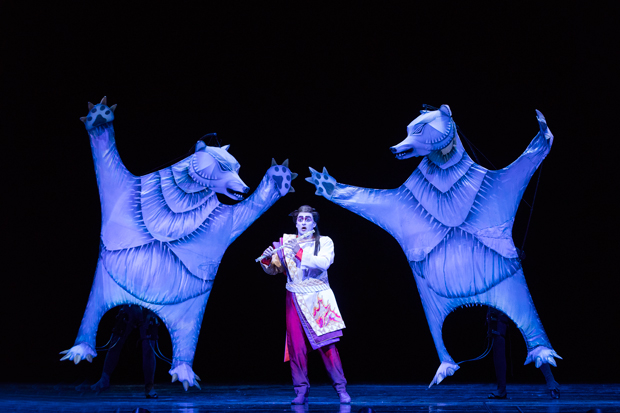
(© Richard Termine / Metropolitan Opera)
The Magic Flute (1791)
More Mozart, but this time for the whole family! The Magic Flute, an ode to community and love centering on a fantastical quest, has lost none of its whimsical charm in the past two centuries. The Met will bring back its condensed English-language production, directed by Julie Taymor with the kind of ceaselessly inventive stagecraft that has made The Lion King a Broadway staple. Running during the holiday season December 15-January 4, this offers an ideal way to introduce preteens to the glories of opera.
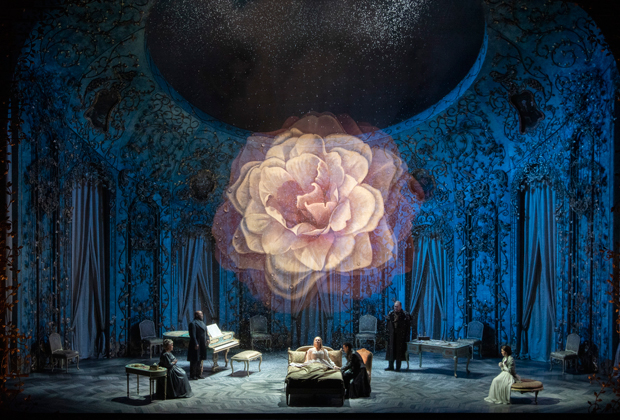
(© Jonathan Tichler / Metropolitan Opera)
La Traviata (1853)
Along with Richard Wagner (see below), Giuseppe Verdi was a titan of opera in the 1800s, and works like Rigoletto, Aida, and Il Trovatore have persisted in the operatic canon. So has La Traviata, Verdi and librettist Francesco Maria Piave's adaptation of Alexandre Dumas's La Dame aux Camélias. Beyond its gorgeous music and wrenching arias, La Traviata offers a nonjudgmental and psychologically incisive view of prostitution that might speak even more potently to modern audiences than it did to 19th-century opera patrons.
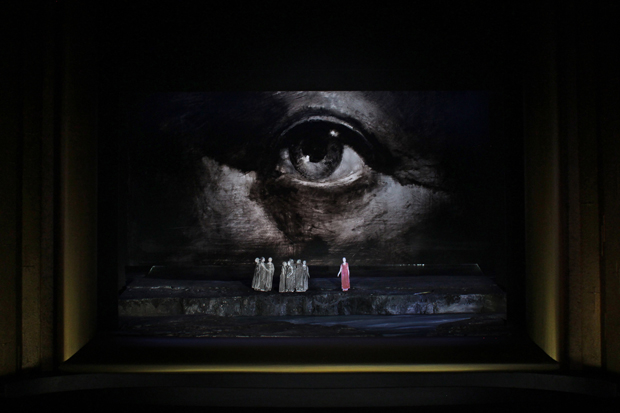
(photo provided by the Metropolitan Opera)
Der Fliegende Holländer (1843)
Richard Wagner is perhaps best known for his monumental four-opera cycle Der Ring des Nibelungen, now playing at the Met. But if that behemoth seems too daunting, this early work, translated into English as The Flying Dutchman, offers an approachable entry point. Relatively compact (an uninterrupted 140 minutes), it boasts some traditional arias and duets, and touches on themes of love and sacrifice that Wagner would explore in depth in his later works. Plus, the Met is presenting it in a new production by François Girard, whose postapocalyptic take on Wagner's valedictory Parsifal was a highlight of the 2012-13 and 2017-18 seasons.
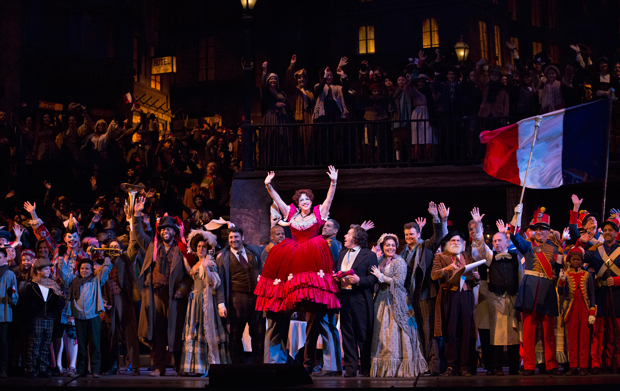
(© Marty Sohl / Metropolitan Opera)
La Bohème (1896)
If you're a fan of Jonathan Larson's Rent and haven't yet experienced the Giacomo Puccini opera that inspired it, the Met offers a golden opportunity with the umpteenth revival of its extravagant Franco Zeffirelli production. Rentheads will delight at seeing many similar plot points between Larson's evocation of East Village bohemian life and Puccini's of the Parisian artistic world, but when it comes to sheer voluptuous lyricism, Puccini has the more rock-oriented Larson beat by a mile. Puccini, along with his countryman Verdi, remains one of the towering figures of opera, and La Bohème is the best introduction to his art.
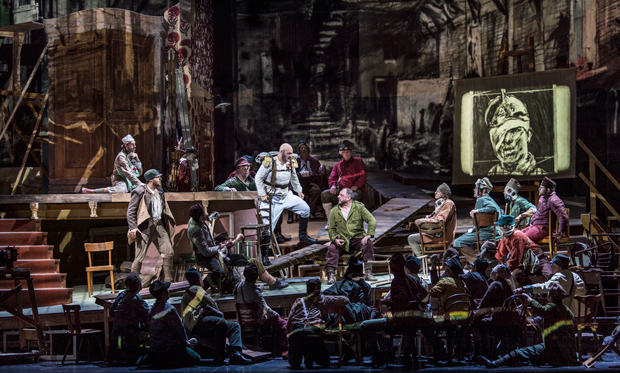
(© Ruth Walz / Salzburg Festival)
Wozzeck (1925)
Atonal music of the type pioneered by Viennese composers like Arnold Schoenberg, Alban Berg, and Anton Webern in the first half of the 20th century is still very much an acquired taste. Of those three composers of the "Second Viennese School," though, Berg was arguably the most successful in making the style emotionally accessible. Wozzeck, his adaptation of Georg Büchner's 1913 stage play, remains searing in its empathetic yet unsparing condemnation of the brutalities of military life, and Berg's music still astounds in its acutely expressionistic depiction of the title character's PTSD. Those willing to take a risk with Berg's bleak and uncomfortable world will be rewarded with one of the finest operas of the 20th century, hopefully given a fresh perspective in the Met's new production from acclaimed South African artist William Kentridge.
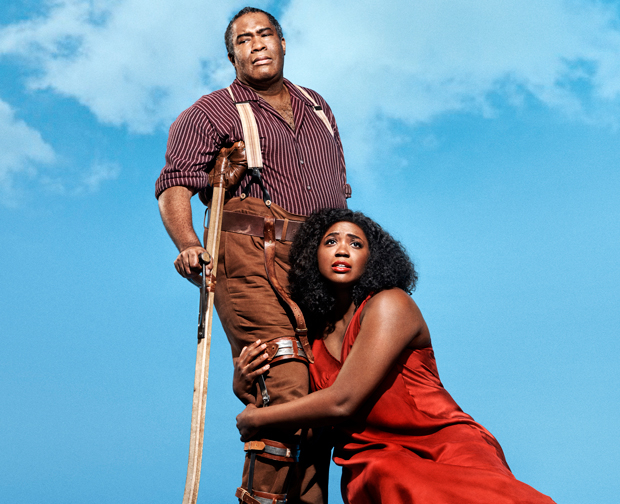
(© Paola Kudacki / Metropolitan Opera)
Porgy and Bess (1935)
Many recent productions of George Gershwin's famous folk opera have featured musical-theater stars playing the major roles; most recently, Audra McDonald, Norm Lewis, and David Alan Grier headlined a 2011 production, with the book adapted by Suzan-Lori Parks from Ira Gershwin and DuBose Heyward's original libretto. The Met, however, is giving us a rare opportunity to experience this work in its original operatic form, with two of opera's brightest new stars, Eric Owens and Angel Blue, playing the respective title roles. Though it premiered on Broadway back in 1935 to some controversy, Porgy and Bess is now widely considered one of America's greatest operas, and certainly proof that opera is not merely the province of the Italians and the Germans, who had dominated the form for centuries before the 20th century.
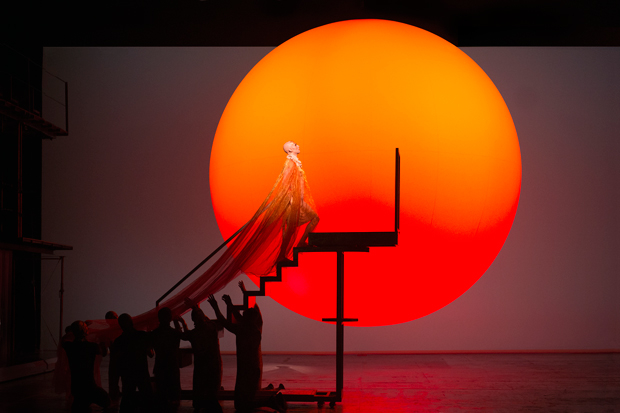
(© Richard Hubert Smith / English National Opera)
Akhnaten (1983)
Even classical-music neophytes are probably aware of the music of Philip Glass, though perhaps more through his film scores than with the more uncompromisingly minimalist scores that made his reputation — especially his 1976 opera Einstein on the Beach. That seminal work, however, was merely the opening salvo of a trilogy of abstractly biographical operas, with follow-up Satyagraha (1980) focusing on Mahatma Gandhi, and Akhnaten centering on the eponymous Egyptian pharaoh and the ways he revolutionized religious thought in his country. The last of these may well be the most accessible of the three, with a bit more emphasis on conventional drama and a more varied musical idiom. Akhnaten, being presented at the Met in a new production by Phelim McDermott, is the newest opera being presented in the 2019-20 season. Opera novices may want to check it out to see how the form has progressed since Handel and Mozart.








